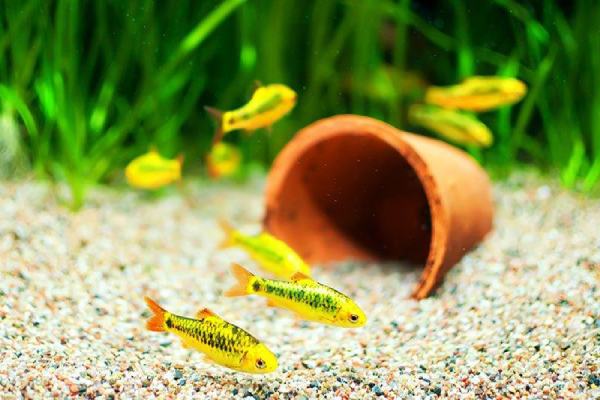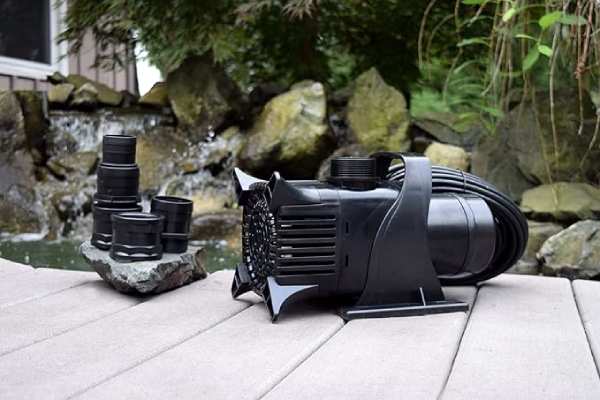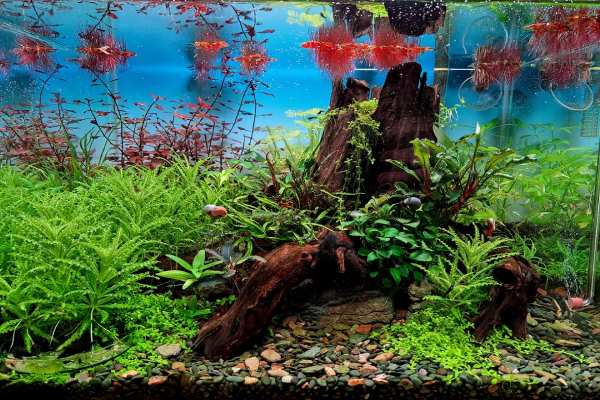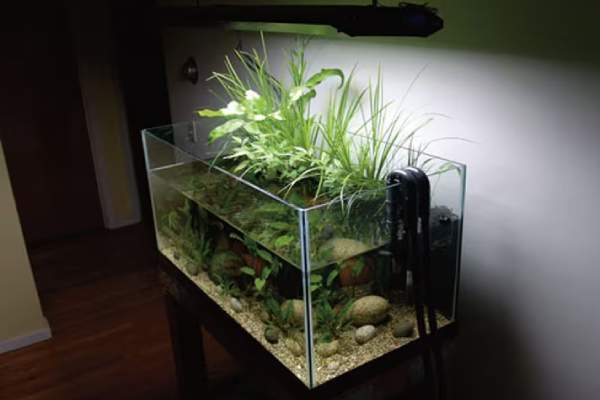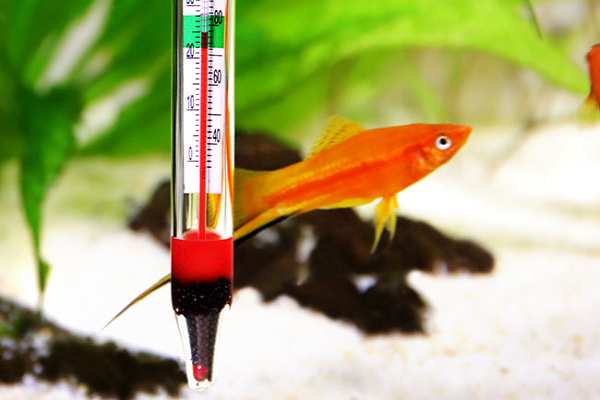Do Fish Get Bothered by Pond Lights? [Answered]
Do pond lights affect fish? If you’ve been scouring the net looking for the answer to the above question, then count yourself lucky because we’ve got you covered.
You know, pond lights are a lovely addition to any fish pond, creating a lovely mood and allowing you to enjoy the peaceful setting even after the sun goes down.
However, as a caring pond owner, it is important that you evaluate the impact of artificial light on the health and behavior of your fish. How do they react to the pond light? Do pond lights bother fish or other aquatic organisms? Do they really need pond lights?
![Do Fish Get Bothered by Pond Lights? [Pond Lighting]](https://aquifacts.com/wp-content/uploads/2024/04/do-fish-get-bothered-by-pond-lights-img_1.jpg)
The truth is, artificial pond lights do not affect most fish species, but there are other key factors to consider before using pond lights in your fish pond, and we will discuss them in detail in this blog post, so keep scrolling.
Read Also: How to Increase Plant Growth in Planted Tanks [CO2, Light & Nutrients]
We will explore the effects of pond lights on fish, safe light sources, and practical considerations to ensure the well-being of your aquatic organisms. Now, without further ado, let’s jump right into it.
Effects of Artificial Light on Fish
Many pond fish species are not disturbed by artificial pond lights, as they are accustomed to experiencing light variations in their natural habitats.
In nature, fish are exposed to sunlight for up to 12 hours a day, so a few extra hours of artificial light normally won’t affect them.
However, it is critical not to leave the lights on all the time because fish, like humans, require a cycle of light and darkness to maintain good behavior and relaxation.
Light Sensitivity and Behaviour
Fish eyes are finely developed, with a structure similar to that of birds and mammals. While most fish can tolerate moderate levels of light, strong lights can be irritating.
A reasonable guideline is; if the light is too harsh for you to look at comfortably, it’s definitely too bright for the fish as well.
Research the specific light sensitivity and requirements of each fish species in your pond to adapt to their demands. Some fish, such as cichlids, may be more vulnerable to continuous light exposure.
Providing dark and sheltered areas in the pond will give the fish a sense of security and enable them to retreat when they feel uncomfortable or threatened.
Lighting Duration and Fish Behaviour
Maintaining the natural behavioral cycles of fish requires establishing a constant schedule of light and darkness. Fish, like humans, have rest and active phases, and sticking to a constant lighting schedule can help them stay healthy and stress-free.
You should only use pond lights for a few hours after sunset and turn them off during the day. You should also try using timers to guarantee that the lights are turned off at a certain time each night, providing a balanced light-dark cycle for your fish.
Light, Heat, and Algae Growth
Consider the issue of heat emissions when choosing pond lights. LED lighting is a popular choice due to its energy efficiency and low heat generation.
Halogen lights, on the other hand, emit more heat, and extended exposure to such lights can cause discomfort or even harm to your fish.
Additionally, temperature management is critical for the health of your fish. Excessive heat from the lights can raise the temperature of the water, causing stress and health issues for your fish and other aquatic species.
Also, too much artificial light in the pond might promote the growth of algae and other aquatic plants. While some light is required for plant growth, an oversupply of light can cause algae to proliferate rapidly, making cleaning and maintaining the pond difficult.
This rapid development can deplete oxygen levels in the water, harming your fish and other aquatic species.
Do LED lights hurt fish?
LED (Light Emitting Diode) lights have become very popular in the aquarium hobby because of their energy efficiency, extended lifespan, and adaptability in creating various lighting effects.
LEDs emit less heat and consume less energy than traditional lighting options such as incandescent or fluorescent bulbs, making them a preferred choice for aquarium lighting.
Regarding your fish’s eyes, it’s crucial to remember that they have distinct visual systems from humans and other terrestrial creatures. Their eyes have been specially designed to work underwater, and they have specialized photoreceptors that allow them to perceive colors and detect movement in their aquatic habitat.
The biggest issue with LED lights and fish is not the lights themselves hurting their eyes but rather the intensity and spectrum of the light.
LED lights that are very bright or emit light in wavelengths that your fish are sensitive to can cause stress and discomfort. Bright lights can also cause “light shock,” in which your fish becomes disoriented and anxious.
Safe Light Sources for Your Pond
LED lighting is highly recommended due to its low heat emission, energy efficiency, and variety of color options. They are also available in submersible forms, making them perfect for use in ponds.
Here are some popular and safe lighting options:
Jebao Submersible LED Pond Light
This model is well-known for its adaptability, as it can be immersed underwater and has a variety of colored lenses. Its photo-sensitive feature turns on the light automatically after sundown.
Aquascape Submersible LED Spotlight
This light is bright and doesn’t emit heat. It has a sturdy metal frame and a long-lasting LED bulb. It is a popular choice due to its ease of integration with other lights of the same type.
Deckey Solar Powered RGB LED Landscape Spotlight
This environmentally friendly solar-powered light charges quickly, eliminating the need for additional electric costs. It can also be submerged, making it an energy-efficient way to enjoy your pond at night.
How to prevent pond lights from bothering fish
Preventing pond lights from bothering your fish is essential to maintaining their natural behaviors and overall well-being
The truth is, pond lighting that is properly designed and installed can add beauty to your pond without negatively affecting your fish. Now, here are some useful tips on how to achieve this;
Choose Fish-Friendly Lighting
Opt for underwater pond lights specifically designed to be fish-friendly. These lights provide gentler, diffused illumination that will neither irritate nor stress your fish. Make use of powerful, focused spotlights to avoid startling or disturbing your fish.
Positioning and Direction
Pay close attention to the placement and orientation of your pond lights. Aim the lights away from locations where your fish typically gather, such as feeding grounds or hiding spots. Instead, aim the light at the surrounding area or the water’s surface to avoid penetrating the deeper areas where your fish gather.
Install Dimmers or Timers
Installing dimmers or timers will allow you to manage the intensity and duration of your pond lights. Lowering the brightness of the lights at night or turning them off after a specific hour allows the fish to rest and follow their normal day-night cycle.
Avoid Frequent Light Changes
Fish are sensitive to sudden changes in lighting. If you intend to move from daytime to nighttime lighting, do so gradually over several minutes to simulate a natural transition. Avoid drastic alterations that may stress your fish.
Use Warm-Colored Lights
Warm-colored lights, such as yellows and oranges, are often more calming and less invasive to fish than cooler, bluish tones. These colors create a peaceful ambience by mimicking the natural warm glow of sunrise and sunset.
Limit Lighting Hours
Avoid leaving the pond lights on for long periods of time. You can limit the lighting hours to nights or when you will be actively enjoying the feature.
Conclusion
Pond lights can be a visually appealing addition to your pond, boosting its charm and allowing you to enjoy the environment even at night, but do pond lights affect fish? As stated above, pond lights cause little harm to most fish species when used responsibly.
You can create an enticing setting while protecting the well-being of your fish by providing a balance of light and gloom, ensuring the lights are not too bright or heat-emitting, and selecting appropriate light sources.
Remember to research the light sensitivity of your specific fish species and provide them with ample opportunities for retreat to ensure they remain healthy and happy.
Read Also: UV Light for Koi Ponds – Things to Know
FAQs
Pond light can have very little effect on fish behavior and overall well-being depending on the species. The light might disturb the fish’s regular day-night cycle, causing stress.
Pond lights can be harmful to your fish if not used properly. Excessive or incorrectly positioned lighting might interrupt their natural behavior, causing potential health problems. Bright lighting can also impair their capacity to sleep and find food at night.
The safe cycle for turning on pond lights varies with the lighting system and pond environment. Depending on the season, it’s preferable to strive for 8-10 hours of darkness at night.

